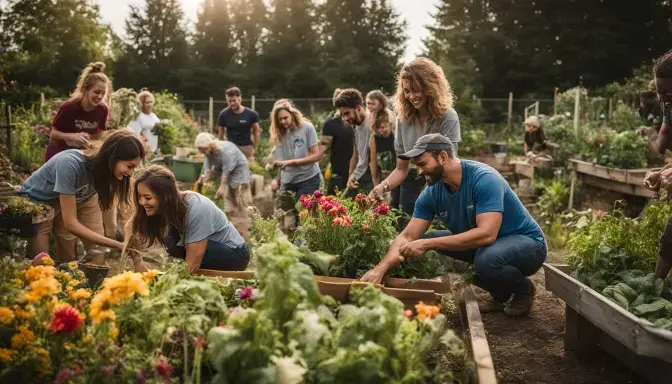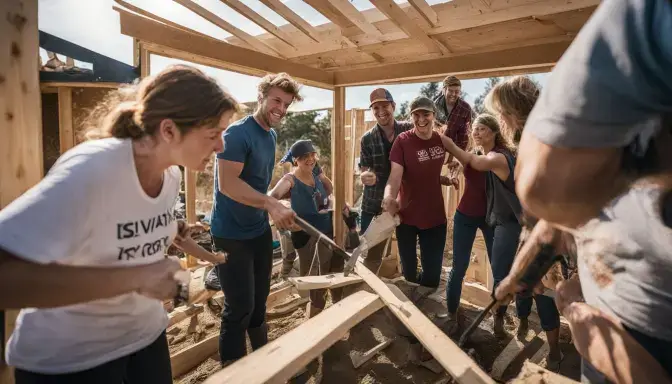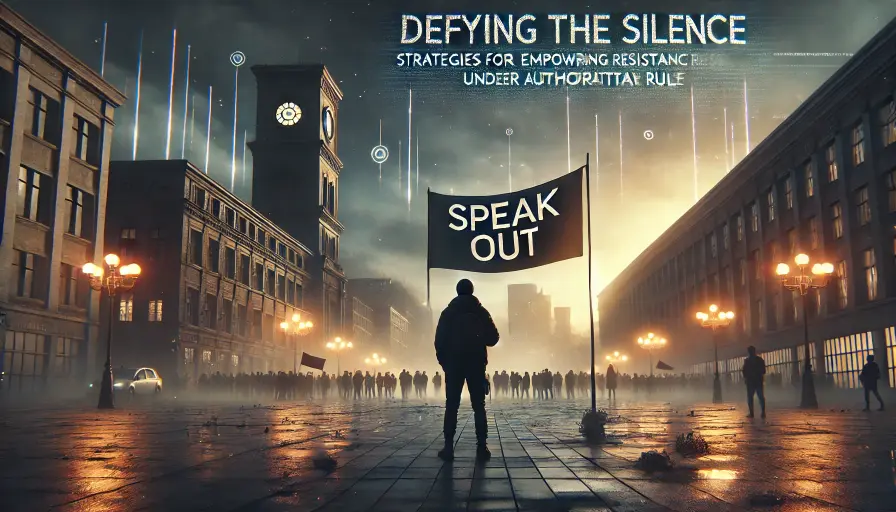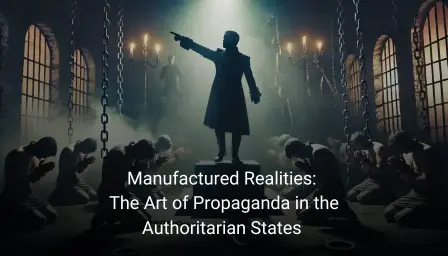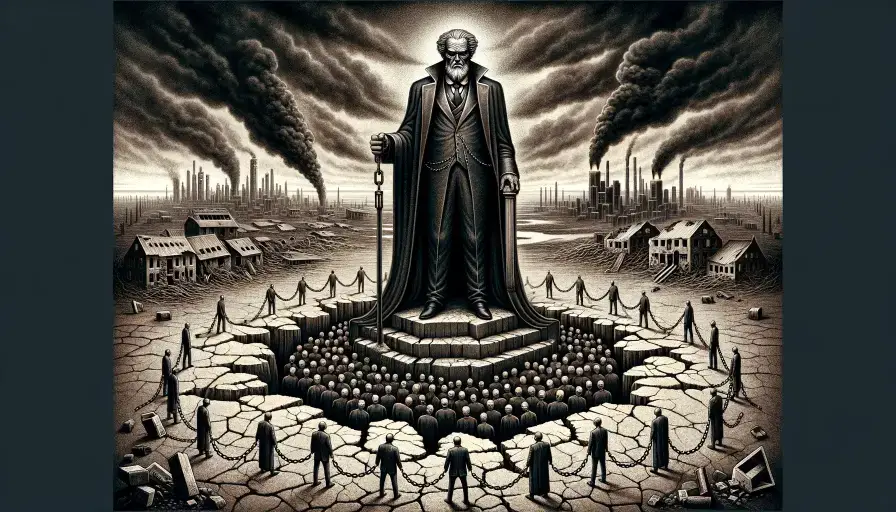At its core, service to humanity is about positively impacting the world around us, one act of kindness at a time. It’s a selfless commitment to improving the lives of others, whether through volunteering, philanthropy, or simply extending a helping hand to those in need.
Service transcends boundaries of race, religion, and nationality, uniting us in our shared humanity and reminding us that even the smallest gestures can ripple outward, inspiring others to pay it forward.
In a world that often feels divided, service to humanity is a powerful force that brings people together, fostering empathy, compassion, and a sense of collective responsibility for the betterment of society.
Ready to be inspired? Keep reading!
The Role of Service to Humanity in Society
Service to humanity lights up communities, giving people the push they need to face life’s challenges. It’s like a beacon of hope, guiding folks toward better days and brighter futures.
Providing Hope and Assistance to At-Risk Youth
Organizations around the globe step in to light up lives, providing educational support and life skills coaching. They target at-risk youth, ensuring these young individuals don’t fall through society’s cracks.
Through tutoring and emotional guidance, volunteers instill hope. This direct involvement helps them see a path forward in life—an alternative to hardship and conflict.
These programs also offer financial literacy training along with entrepreneurship and leadership workshops. The aim is not just survival but thriving into adulthood. By developing crucial life management principles early on, these youths learn to navigate a world that once seemed narrow and filled with obstacles.
Their stories of transformation underscore how service to humanity reshapes futures—turning vulnerability into strength, despair into ambition.
The Impact of Humanitarian Services on Social Well-being
Humanitarian services boost our society’s health by knitting us closer together, sparking joy and unity—now, isn’t that something you’d want to learn more about?
Fostering Peace and Harmony
Service to humanity is crucial in building communities and fostering peace and harmony. Through acts of kindness and compassion, people connect on a deeper level, breaking down barriers of misunderstanding or mistrust.
Volunteerism and advocacy pave the way for a more peaceful society by promoting understanding across different cultures and lifestyles. This path of service not only uplifts the downtrodden but also unites individuals with the common goal of making the world a better place.
Working together towards this noble cause instills a sense of purpose and fulfillment in everyone involved. It encourages individuals to look beyond their personal needs towards the greater good of society.
Communities thrive when love, compassion, and service to others become part of everyday life, leading to healthier lives and well-being for all ages. By fostering peace and harmony through service to humanity, societies experience profound transformations that contribute significantly to global health and happiness.
Stimulating Personal and Community Development
Service to humanity reaches out to those in need and ignites a spark of growth within communities and individuals. It builds bridges between diverse groups, fostering an environment where everyone can learn from one another.
This shared experience enhances our sense of purpose and belonging, which is crucial for personal development. Volunteers also gain new skills, improving teamwork, communication, and problem-solving abilities.
Moreover, these activities promote leadership by encouraging individuals to take initiative and work towards common goals.
Communities thrive when their members are actively involved in uplifting each other. This collective effort leads to sustainable development by addressing local challenges through innovative solutions.
Engaging in humanitarian services allows us to visualize the impact of our actions on society’s well-being as a whole. It makes the ‘service to god’ concept tangible, demonstrating love and compassion.
As we strive to improve social well-being, we establish stronger connections that enrich individual lives and the broader community network—making every act of service a step toward a more harmonious world.
Key Takeaways
- Serving others helps young people facing tough times see a brighter future. Programs teach them essential life skills, preparing them to take on the world.
- Acts of kindness bring communities closer, creating peace and understanding among different people. This makes everyone happier and healthier.
- Volunteering teaches us new skills and makes us feel like we belong. It also helps our communities grow stronger by solving problems together.
- Working for the good of others gives everyone’s life more meaning. It turns our love and compassion into real help that improves society’s health.
Conclusion
Serving humanity is a powerful act that elevates ourselves and the world. It provides aid and comfort to those in need and shapes a better society.
Through service to others, we bring hope, encourage peace, and enrich our own lives. This cycle of kindness reverberates outward, uplifting individuals, families, and communities.
In an age of growing division and uncertainty, service to humanity is a beacon, reminding us of our interconnectedness and shared humanity. We fulfill our highest callings as citizens by making a difference through generosity, compassion, and care.
Service is essential for cultivating a thriving, equitable, and resilient society. By dedicating ourselves to this noble undertaking, we become active participants in shaping a future defined by mutual support, collective flourishing, and the betterment of the human condition.
By heeding the call to service to humanity, we transform the lives of others and elevate our spirits and humanity’s shared destiny. Being a responsible, engaged citizen committed to the common good becomes increasingly critical for navigating complex challenges and fostering greater social cohesion.
FAQs
- What does “service to humanity” mean?
Service to humanity is all about helping others, especially those in need. It’s like when you see someone without a coat in the cold, and you give them yours. This service can strengthen our nation and show how much we care for each other.
- How can serving others help society?
When people help each other out, it creates a chain of kindness. Imagine if everyone did something nice for someone else—soon, the whole world would be happier! Helping can be anything from teaching kids to read, feeding those hungry, or being there for a friend.
- Why should young people get involved in service to humanity?
Getting involved teaches youth essential life skills like hard work, love, and how to care for others. These experiences don’t just look good on college applications; they shape you into someone ready to tackle any challenge with compassion and understanding.
- Can service change the way we live?
Absolutely! Focusing on helping others instead of just ourselves changes our perspective on what’s truly important—like family, friends, and community—over material things. This new outlook can lead us all to live more fulfilling lives.
- Is there a connection between service and religion?
Many religions teach us the importance of serving others as an expression of love for God or higher power beliefs. They encourage followers to reach out and support those less fortunate as part of their spiritual practice—it’s seen as both an obligation and a path to personal growth.
- What impact does volunteering have on one’s well-being?
Volunteering helps those in need and brings joy and satisfaction to those who give their time. You learn new skills while making meaningful connections with others and sharing your passion—proving that giving back is truly rewarding for everyone involved.


